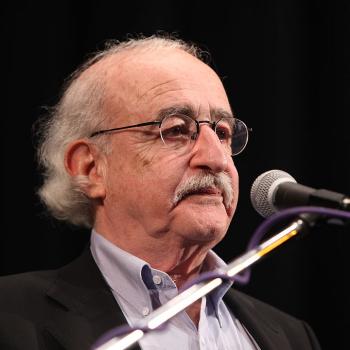This conversation, among others, convinced me that, in an America where Catholics are flocking to Trump and Cruz and every other populist under the sun, that something has to be said, that the ultimate authority and loyalty of God’s people to the Church needs restating. With this in mind, I was reminded of the story of Blessed Clemens August Graf von Galen, Cardinal-Bishop of Münster. His anti-Nazi activism (and do not take this as a comparison of Trump to Hitler; those comparisons are, in my opinion, overblown) along with that of other Christians like him, might serve as exempla for a Church in need of a radical reorientation to the supremacy of the Faith as it exists in all orthodox traditions, and not as contained in one people or liturgical rite (be they Americans, Latin Catholics, Byzantine Catholics, or anyone else).
Bishop von Galen was an avowed nationalist, distinctly on the right-wing of German politics during the Weimar era. He supported Germany during the First World War, thought a lack of patriotism had crippled his country during that conflict, and was, at first, a tepid supporter of the Nazi Party. Also noted for his outreach to the poor, the bishop became a vocal opponent of the regime, especially due to its euthanasia campaign; in fact, this opposition led him to help draft the anti-Nazi papal encyclical Mit brennender Sorge (With Burning Concern). Three of his sermons opposing the regime (while always restating his loyal commitment to the German people) made him so popular the Nazis would not remove him during the war, for fear of the loss local loyalty. His heroics inspired anti-Reich martyrs: Catholic, Protestant, and Orthodox (I have in mind, especially, the White Rose and the Lübeck Martyrs). The former were mostly students (one of whom became a canonized Orthodox saint), who distributed leaflets urging non-violent resistance to the authorities. The latter were four clerics (three Catholics and a Lutheran) who were executed for anti-Nazi comments; they also worked among the poor and marginalized, meeting the guillotine for their commitment to God’s law of love. These people read Bishop von Galen and decided that God demanded more than loyalty to one state, one people, or one mode of spiritual expression; He demanded love of neighbor as self.
Yet, the blessed Cardinal remained a patriot to his dying day. After the war, he criticized the British treatment of the German people, visited German prisoners of war in Italy, and condemned the forced removal of Germans from the newly formed Communist Poland. His final words say it all: “Yes, yes, as God wills it. May God reward you for it. May God protect the dear fatherland. Go on working for him…Oh, you dear Savior!” Bishop von Galen never stopped loving Germany (perhaps to a fault), yet when push came to shove, when Church teaching came into conflict with the state, he knew where his allegiance belonged.
Obviously, our own situation in America in 2016 is not the same as that of Christians in Nazi Germany (no matter what people say), nor do I think the quasi-ethnocentrism of certain Byzantines is a real cause for concern, but, with nationalistic rhetoric and xenophobic tendencies on the rise, with fear of the other, of immigrants, of refugees, and of the poor burning in people’s hearts, Bishop von Galen provides a reminder of our necessary commitment to God’s law, of the supremacy of His teachings over all else. The bishop’s courageous words inspired others (who were not even all Christian!) to pick up their crosses and die in opposition to distorting pride and satanic malice. May we, though nearly 70 years removed from his death (the memorial is in three days), find peace in his example, love in his words, and faith in his commitment to God before the ridiculing eyes of man.













